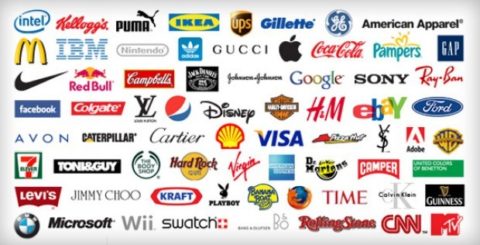Successful companies have solid brand names we recognise wherever we are in the world and they rarely change them – Coca Cola, Microsoft, Apple, Gap. Of course, there are successful companies that do re-brand, although usually when bigger companies subsume and split them up, think Imperial Chemical Industries, which was commonly known as ICI, which eventually became AstraZeneca and various other firms.

Then, there was the ludicrous attempt by Britain’s state-owned “Royal Mail” to rebrand itself for the “modern” age as “Consignia. And, who could forget the rebranding of the UK polytechnics as universities in the early 1990s. I learned recently that there are now University Technical Colleges (UTCs), which seem to be more akin to the old sixth-form colleges but offering curricula from the GSCE (high school level), through A-levels and above.
Within a company though there might be a range of products that get the re-branding treatment and it doesn’t necessarily always work. In the UK, we used to enjoy a Marathon (the nutty version of a Mars Bar, you might say), but then it was reformed as Snickers to align with Europe, the US and everywhere else. Opal Fruits were “made to make your mouth water” (they never did, just made you thirsty I seem to remember), but they became the far less mouth-watering Starburst.
Similarly, we used to have Jif bathroom cleaner (oh, and Jif lemon), but to give it a more Eurocentric name Jif cleaner became Cif, pronounced in the UK like the colloquialism for a certain sexually transmitted infection. The latter phrase commonly abbreviated STI, but previously STD (with the D standing for disease, not all infections present as disease) used to be called venereal disease, from the Latin Venus. Then there are the obfuscating name changes that attempt to escape a battered reputation, thus the nuclear waste site at Windscale essentially became known as Sellafield, British Rail with its alleged out-of-date pork pies and dry, curly sandwiches (that actually never were!) was split and became RailTrack and various carriers, one of which was stupidly called One for a time.
Windows 3 sounds archaic, 95 quickly dated, became 98, then the millennial and clichéd “Me”, XP, 7, 8 etc etc. Similarly, AT&T Broadband Internet became Comcast, Borland became the uninspiring Inprise and then back to Borland all within three years of the millennium bug. Freeserve was then the puerile Wannado and ultimately the product-free name Orange. Coco Pops in the UK became known as the Eurocentric Choco Krispies for a while and then back to the far wittier Coco Pops. Oil of Ulay became Oil of Olay. The stoic Norwich Union established in 1797 was subsumed under the dysaesthetic name of Aviva and many other banks and insurers went a similar route. I’ve previously reported on how the company Lucky Goldstar morphed into one of the most successful consumer electronics brands (LG, in case you didn’t guess). The list goes on.
Writing in the current issue of the International Journal of Business and Globalisation, Petra Ringeisen and Reinhard Hünerberg of the University of Kassel, Germany, have researched what kind of impact rapid rebranding as part of an international standardisation effort can have on a company’s bottom line. They found that brand names changes often annoy customers especially when they learn that the “new” name was in place in foreign climes for years and their “local” brand was simply a parochial anomaly.
But, people like their parochial anomalies, few people want to live in a homogenised global village, multicultural means diversity, not all the same. As such annoyance can lead to consumers abandoning a once much-loved brand in favour of a rival and initially a loss of profits for the name-changer.
Further research will show the ultimate fate of such brands, presumably, once the original name has been forgotten by the older consumers, the history will be unknown to the younger buyers, all other things being equal profits will climb again. How long that takes is a matter of opinion. I have never, knowingly bought and eaten a Snickers bar, although I probably had more than my fair share of Marathons as a British child of the 1970s.
![]() Ringeisen, P. and Hünerberg, R. (2013) `Consumer response to brand renaming as part of an international standardisation strategy´, Int. J. Business and Globalisation, Vol. 10, No. 4, pp.456-469.
Ringeisen, P. and Hünerberg, R. (2013) `Consumer response to brand renaming as part of an international standardisation strategy´, Int. J. Business and Globalisation, Vol. 10, No. 4, pp.456-469.
UPDATE: A misguided rebranding just in: allegedly, the UK’s Chartered Institute of Librarians and Information Professionals is planning to change its name to “The Knowledge People”. WTF? Not only is that pretentious but it doesn’t really tell us anything about what the organisation is, librarians and information scientists do not have a monopoly on knowledge, after all. Still with CILIP, but pronounce it chill-I.P.